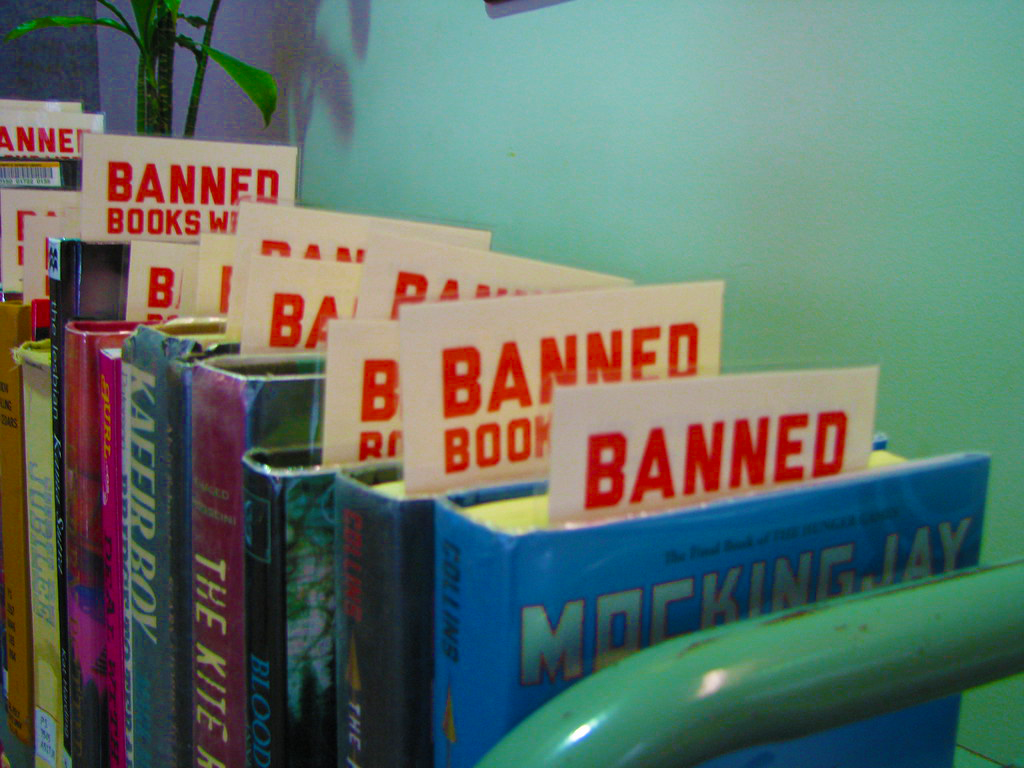
Flickr
Banned books are books that are locally or federally prohibited from being distributed in public institutions, like schools
To any avid reader or student, the term ‘banned books’ shouldn’t be unfamiliar. Banned books are books that are locally or federally prohibited from being distributed in public institutions, like schools. Books are often banned due to the inclusion of mature content that the government decides is not appropriate for minors to be reading. Just as often, banning occurs to censor certain content, such as LGBTQ+ representation or Critical Race Theory. These bans are enforced on a local level, meaning that just because a book is banned in one district, it doesn’t mean that it is outlawed across the state.
AISD does not ban books, but out of every state in the U.S, Texas ranks third, with 538 books removed from shelves across 12 school districts. These books range from novels containing discussions of gender identity to children’s books that explain desegregation in an age-appropriate way. Here are just a few of these prohibited books that you might be interested in reading:
Gender Queer is a graphic novel memoir that describes author Maia Kobabe’s journey with understanding their gender and sexuality. On paper, the book is banned due to its “sexual content,” but its fluid representation of gender identity is the real reason it is one of the most banned books in the United States.
Maus is a graphic novel that tells the story of author Art Spiegalman’s parents, who were Jewish survivors of the Holocaust. In the book, people are depicted as anthropomorphic animals; Jewish people are mice, Nazis are cats, and so on. This allows the novel to portray the true horrors of the Holocaust without having to censor it. However, it’s simplified style didn’t stop school districts from censoring it due to its “unnecessary use of profanity and nudity” and “depiction of violence and suicide.” Wow, a book about an extremely violent historical event depicts violence? Wild.
Separate is Never Equal is a picture book that tells the true story of Sylvia Mendez, an eight year old girl who played a pivotal role in Mendez v. Westminster, the landmark desegregation case of 1946 in California. That’s…literally it. The book contains no mature or graphic content, it is simply a book about desegregation made for children to understand. However, some governments and parents found a fault in the story and made it impossible for their children to read.
Out of Darkness is a loose adaptation of Romeo and Juliet, and takes place after the real-life 1937 New London school explosion in East Texas. The story follows the love story of a Hispanic girl and African American boy, who’s romance breaks all the rules against interracial relationships that existed at the time. This book has been removed from many school districts due to its portrayals of abuse and sexually explicit material, despite its value as a historical lesson for young people
Drama is a graphic novel that centers around a middle school theatre production of Moon over Mississippi, and all the drama–pun intended–that surround it. The book includes LGBTQ+ representation among the basic struggles of junior high, and is a relatable and entertaining book for youth. However, the book is banned due to its “inclusion of sexual content”, despite only containing minimal references to kissing and non-graphic discussions of sexuality.
These are only a few of the books that have been banned from Texas schools in recent years. It’s important to note that, while some of these books do contain heavy material, none of it is inappropriate for the audiences they are targeted towards . Gender Queer and Maus aren’t being put in elementary school libraries, after all. The other books mentioned are innocent and child appropriate while minutely drawing attention to larger issues of systemic racism and homophobia that all people should be aware of. It is hard to think of any reason to ban them, other than not wanting children to know that racism and gay people exist, reinforcing division and hate in society.
In history, book bans have rarely ever occurred out of noble intent. They are usually done to erase the past, and silence marginalized groups. Knowledge is power, after all, and some people want to keep it away from you for that very reason.
